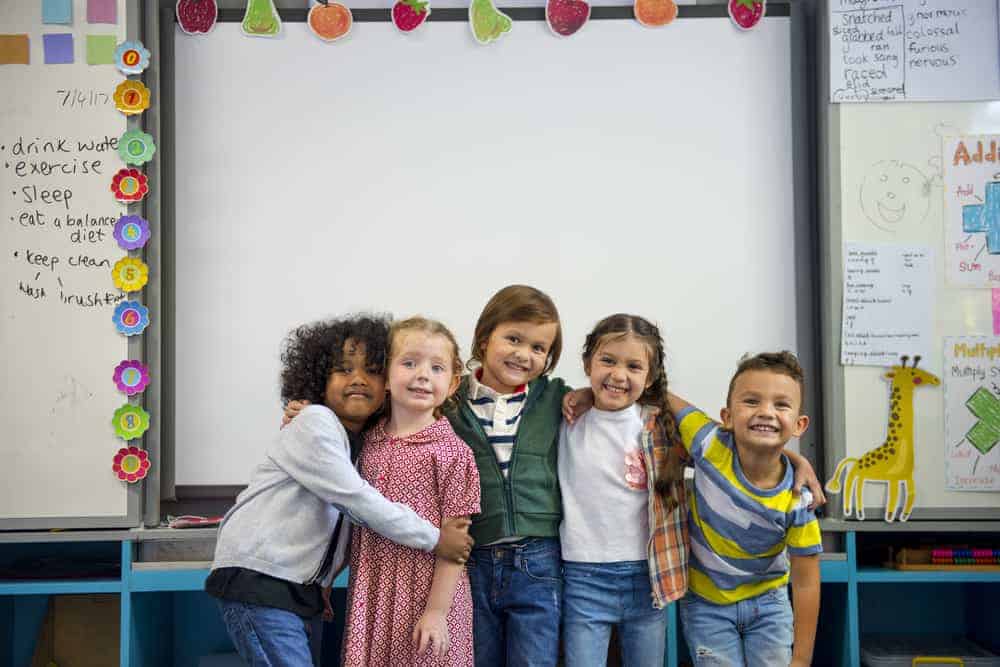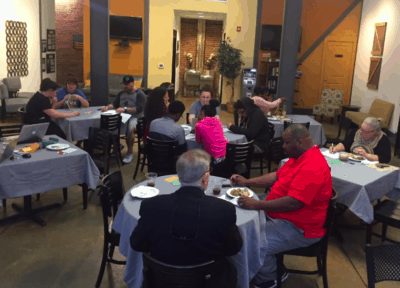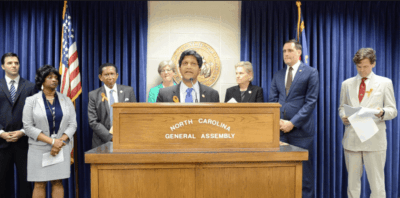Do you remember the last time you started a new job? What were your thoughts and worries that morning as you packed up for first day? Did you wonder what to wear? If people would be welcoming? Who will you eat lunch with? Now imagine you are just five years old and getting on a bus to start school for the very first time not knowing how you will be greeted or what to expect.
It was a warm Friday morning in late August when D’mari came through my classroom doors wearing a backpack that was about the same size at him. There were big juicy tear running down his face as he repeated over and over, “I don’t want to go to kindergarten!” Little did I know at the time, the first day of kindergarten is, for many children like D’mari, their first experience in a formal learning setting. I also did not know, that research shows the first day of kindergarten can mark the tone for a child’s academic experience for years to come.
I was 22 years old when I moved from West Lafayette, Indiana to Warren County, North Carolina as a Teach For America corps member. I was in a new environment, new career, and about to meet a bunch of kindergarten students who would change my career trajectory.
Lesson plans and activities take on many forms in a kindergarten setting, but each aid in the long-term social and academic growth of our state’s youngest learners. I taught kindergarten in Warrenton, North Carolina for three school years and will never forget my 60+ students who sat on the carpet daily ready to learn. Thank goodness for Mrs. Davis, my teacher assistant, who had been working in kindergarten for many years before I arrived. Because of her, I had a model of how to work with a group of kindergarteners not just to teach them how to read and write, but also to build their social-emotional skills and guide them into first grade with the capacity to continue to learn.
These experiences, and the growth of my students, opened my eyes to the earliest stages of learning where access to stimulating learning environments and relationship building with peers, parents and caregivers are so critical to a young person’s skill development and learning. This exploration of ourselves and our environment at the earliest stages of childhood enables our continued growth as adults. In fact, I now know that nearly 90 percent of brain growth takes place in a child’s first 2,000 days, long before he or she attends their first kindergarten class. It’s during this critical time that children start down a path towards the happy, healthy, and successful adults they are capable of becoming.
After teaching kindergarten in Warrenton, I relocated to Durham, North Carolina and continued as a classroom teacher in a child-care center. The combination of my time in both a kindergarten and child-care classroom ultimately helped me develop a deep passion for the importance of the earliest years in a person’s life. The experiences my students had in the five short years before starting school was hugely influential to their kindergarten experience and beyond.
In 2013, I stepped into the Transition to Kindergarten Program Coordinator at Durham’s Partnership for Children. Durham’s Partnership for Children is responsible for administering Smart Start funding from the legislature to support children and families birth to five years old be ready for kindergarten and beyond. In the role, I was tasked with supporting about 4,000 children and their families in Durham County as they prepare for kindergarten. I worked with elementary schools to provide clear parent communication about the registration and transition process and implemented welcome events to ease families into school. I also worked with local child care centers to provide them with the materials and information their families needed to start a smooth transition into school. I thought of D’mari and our first day of kindergarten in Warrenton often during this time as I had a much deeper understanding of the long and important process it is for a child and their family to arrive on the first day of kindergarten, excited, comfortable, and ready to learn.
Today, I continue to support young children across the state through my work with the North Carolina Partnership for Children and Shape NC, a statewide initiative that trains early childhood teachers and child care directors about best practices in child nutrition, physical activity, and outdoor play and learning for children birth to five.
Over the past 13 years working in early childhood in North Carolina, I’ve witnessed firsthand the incredible gifts in every child, but also the great disparities in access to early education opportunities for families and kids in our communities. I better understand the challenges that my students and their families in Warrenton were facing that impacted them even by the time they started kindergarten.
I am grateful to see the field of early childhood is growing and becoming a bigger part of our national conversation. In the years ahead, I have all intentions of continuing to be an advocate for North Carolina’s youngest children, as I know setting the stage early ultimately helps children have the opportunity to attain an excellent education.





